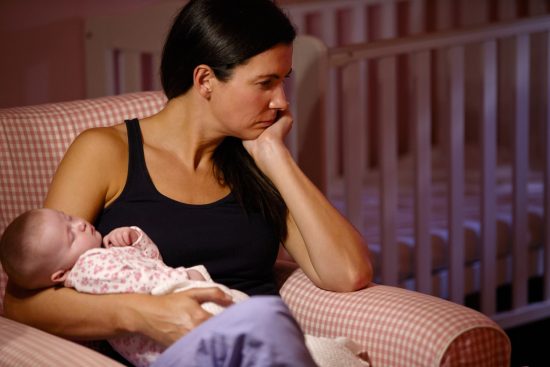Heard it discussed but still feel in the dark? Here are the answers to the most common questions about depression in pregnancy and after birth.
Depression is the most common perinatal mental health disorder women experience in pregnancy and the first year after having a baby. Depression in pregnancy is seen in 7-12% of women, with postnatal depression rates of around 10-15% reported.
Around 10% of fathers have depression in the perinatal period and it is common for both parents to experience mental health problems at the same time. Depression is a mental health illness which, with treatment, will get better in time.
Depression in pregnancy can start at any time, although the severity may be different in each trimester. Postnatal depression usually comes on within six weeks of giving birth, although it can emerge up to a year after your baby is born. While postnatal depression should dissipate within a few months, 3 in 10 people with PND will still be ill after the first year.
Like depression at other times in life, it can be mild, moderate or severe. It can come on gradually or suddenly. The main difference though is that it can be a lot trickier to recognise. That’s because your mental state is likely to change in the weeks and months after you have a baby anyway. You will also have such a lot going on around you.

Symptoms of depression can include:
A depression and anxiety self-assessment quiz is available here.
You can also seek information and support through NHS 111 or via your GP.
If you feel at risk of harming yourself or others then call 999, attend an emergency health care setting, or call the Samaritans on 116 123.
The exact cause of postnatal depression is not clear, although in women it doesn’t seem to be due to hormonal changes. Some factors are known to increase the chance of becoming depressed in pregnancy and after birth. These include:
Speak to your GP or midwife if you think you are at risk of depression
Speak to your GP or midwife if you think you are at risk of depression so that you can get support.
It is important to get help for depression so that you can access the right treatment and support to enable you to get better. If not, it can have major consequences for your mental health, your relationship, your partner’s mental health and the development of your baby.
It is common to have depression along with other perinatal mental health conditions such as anxiety, birth trauma and PTSD.
Treatments for depression include talking therapies like cognitive behavioural therapy (CBT) or anti-depressants (talk to your GP for advice if you’re breastfeeding). If depression becomes severe, you might need a stay in hospital or mother and baby unit.
You can access treatment for depression via your GP or you can find out more about NHS psychological services here.
There are self-care tips that may help with mild to moderate depression:
Our support line offers practical and emotional support with feeding your baby: 0300 330 0700 (option 1).
You might find attending one of our Early Days groups helpful as they give you the opportunity to explore different approaches to important parenting issues with a qualified group leader and other new parents in your area.
Make friends with other parents-to-be and new parents in your local area for support and friendship by seeing what NCT activities are happening nearby.
Contact specialist organisations like PANDAS for more help and support with postnatal depression, including a FREE helpline number on 0808 1961776.
Experiencing mental health symptoms can be overwhelming but help is available, so speak to a trusted health care professional such as a midwife, health visitor, or GP. If you feel at risk of harming yourself or others then call 999, attend an emergency department, or call the Samaritans on 116 123.